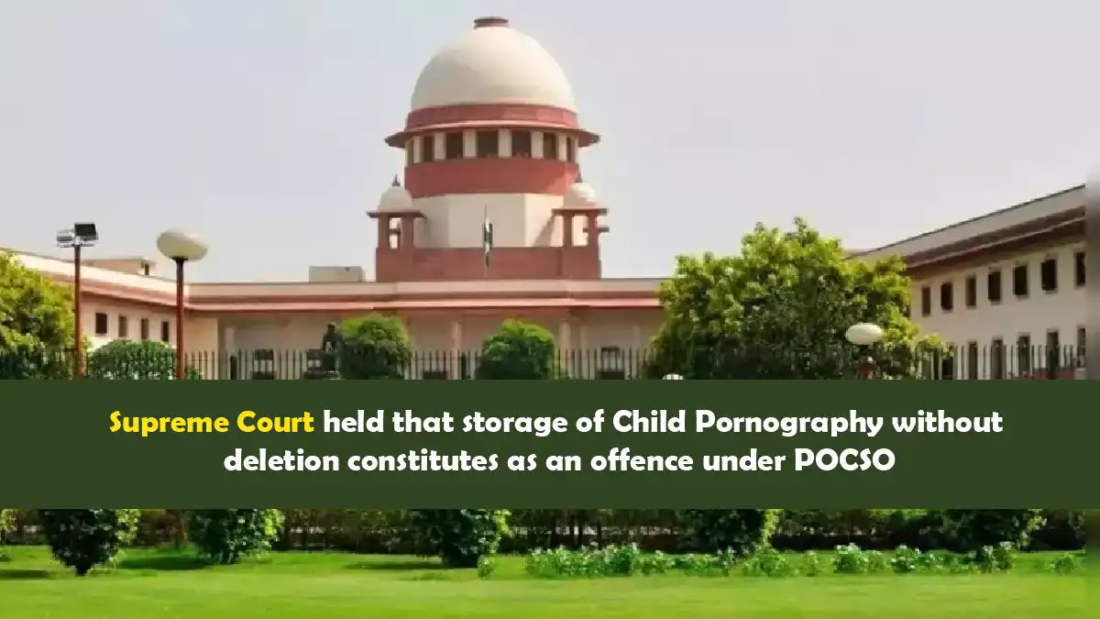The Supreme Court overruled a Madras High Court judgment, holding that the mere storage of child pornographic material, even without an intent to transmit it, can still be considered an offense under the Protection of Children from Sexual Offences (POCSO) Act. This ruling emphasizes that failing to delete, destroy, or report the stored material indicates an intention to transmit, which is punishable.
Contention of the Appellant
The appellant, Just Rights for Children Alliance, expressed concern over the Madras High Court ruling, arguing that it could normalize child pornography by giving individuals the impression that mere possession of such material without transmission is not an offense, which could increase the demand for such exploitative material.
Contention of the Respondent
The accused, who had downloaded child pornographic material for private viewing, argued that they did not transmit or publish the material and, therefore, did not violate any law under Section 67-B of the Information Technology Act or the POCSO Act.
The respondent contended that mere private viewing of child pornography, without any intent to transmit, should not constitute a criminal offense. The accused argued that no child was directly used for pornographic purposes, and hence no offense under the POCSO Act was committed.
The Impugned Ruling of the Madras High Court
The Madras High Court had quashed criminal proceedings against the accused, ruling that downloading child pornography for private use did not violate the POCSO Act or Section 67-B of the IT Act. The court reasoned that no child had been involved in the creation of the material by the accused, and therefore, the accused’s actions were not criminal but a reflection of “moral decay.”
Overruling by the Supreme Court
The Supreme Court, led by CJI DY Chandrachud and Justice JB Pardiwala, set aside the Madras High Court’s decision. The apex court observed that failing to delete or report the child pornographic material showed an intent to share it, thereby constituting an offense under Section 15 of the POCSO Act. The court stressed that the accused’s failure to act responsibly by reporting or destroying the material was enough to establish a presumption of culpable mental intent.
SC’s Observation and Decision
The Supreme Court criticized the Madras High Court’s interpretation as an “egregious error,” emphasizing that child pornography, even if privately stored, still fuels exploitation. The court clarified that Sections 15(1), (2), and (3) of the POCSO Act are distinct offenses, each criminalizing different levels of culpability based on the intent behind the possession, storage, or transmission of child pornography. The Supreme Court also urged Parliament to amend the term “child pornography” to “child sexual exploitative and abusive material” to better reflect the severity of the crime.
The Supreme Court’s decision underscores the gravity of child sexual exploitation material (CSEAM) offenses, stressing that even the private possession of such content is harmful. It ruled that the cycle of abuse perpetuated by the demand for CSEAM must be broken, and both producers and consumers of such material should be severely penalized to protect the dignity and well-being of children.
 Cart is empty
Cart is empty 

